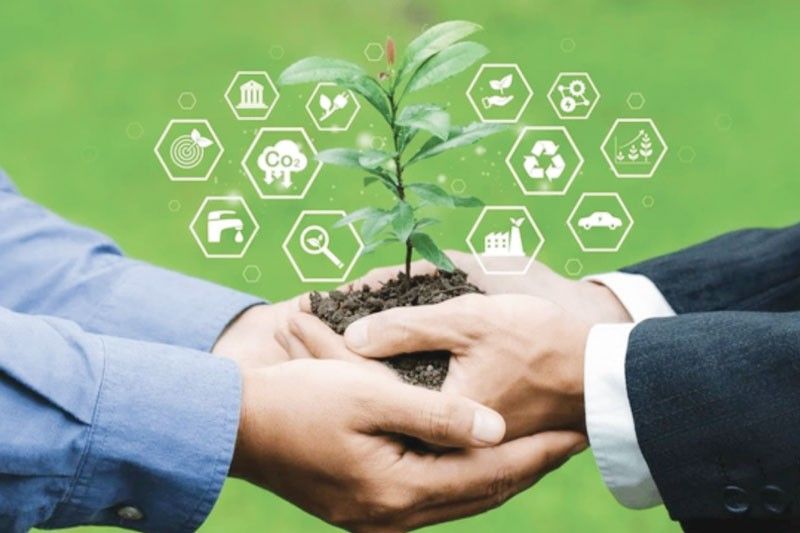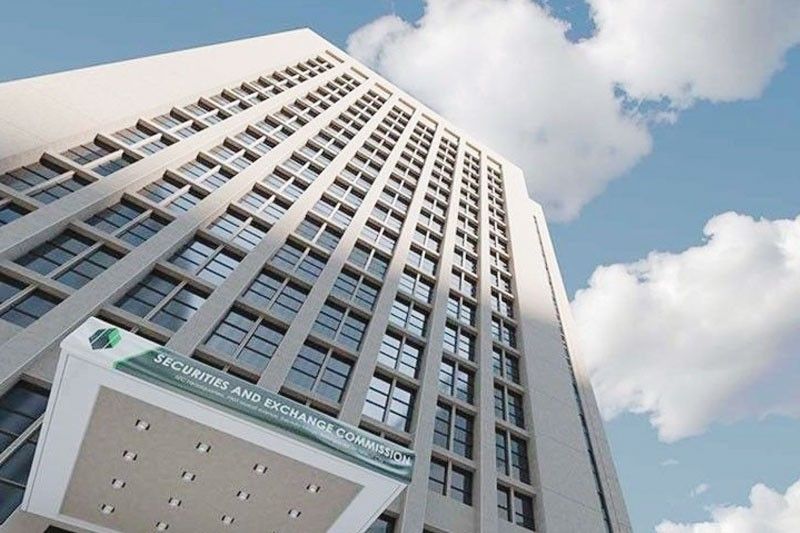More than just a buzzword: Sustainability taken to heart by Philippines firms

MANILA, Philippines — Sustainability has become a buzzword among publicly listed companies in the Philippines, perhaps even becoming overused at times. Being sustainable, however, proves to be easier said than done.
While concerns over greenwashing continue to prevail, many companies are now actually walking the talk when it comes to sustainability.
Securities and Exchange Commission (SEC) chairperson Emilio Aquino admitted that some so-called “sustainability initiatives” of companies in the past were just mere marketing.
“You have seen products which they say are recycled when in fact they are not; or only the package is recycled and they brand it as if the entire thing is recycled. That’s exactly why we’re going to more specific metrics. You cannot just simply claim that now,” Aquino told The STAR in an interview.
Taking the lead in promoting sustainability in the corporate sector, the SEC issued in 2019 the Sustainability Reporting Guidelines for Publicly Listed Companies. This helped listed firms in evaluating their non-financial performance and monitoring their progress towards meeting sustainability goals.
“Our reporting has become clearer because if you come up with standards that are comparable, uniform and transparent in the presentation of this information, then it will be much easier. It will not be just general statements like ‘we are green advocates’ etc. That is greenwashing,” Aquino said.
“Now there are metrics and they’re getting finer and finer; more specific. When you say you are really using renewables, then it is specified. Unlike before it was just very easy. You can always say ‘I am an advocate of sustainability’,” he added.
Since the implementation of the Sustainability Reporting Guidelines, the corporate regulator has seen a significant jump in the submission of sustainability reports among publicly listed companies in the Philippines.

From a measly 22 percent submitting on a voluntary basis back in 2017, Aquino said 95.41 percent of 283 publicly listed companies submitted their sustainability reports last year.
Sustainability has therefore become a part of good corporate governance of many Philippine companies, not just the big ones.
“Companies which we regulate ordinarily have only one bottom line and it is profit. Now we’re moving towards the triple bottom line framework where it’s not just all about shareholders’ value or profits or the bottom line,” he said.
“One, we have to consider the environment. Second is social, meaning your employees and your community. And the third would be governance: how you run of course the company, including the shareholders and stakeholders. It’s not just about the shareholders’ value. You have to consider whether you’re taking care of the environment and your people, community and all,” Aquino added.
Via the sustainability report, listed companies indicate their disclosures with respect to risk and the consequences of certain actions, mostly non-financial.
“So if audited financial statements bear all the financial information, this one bears non-financial information on how you treat your people; the diversity in your board and among your employees; how you take care of your community where you’re situated; if your energy is renewable — those are all disclosed there. The accountability is now different,” he said.
In its pursuit of further advancing a more sustainable future for the country, the SEC is continuously refining the guidelines to ensure that disclosures are timely, impactful and meaningful. Such revision of the guidelines is aimed at making it easier for companies to report their environmental, social and governance (ESG) impact through industry-specific metrics and forms.
The commission is currently working on the adoption of the IFRS Sustainability Disclosure Standards developed by the International Sustainability Standards Board to better monitor and ensure the transparency, accuracy and reliability of ESG-related data.
According to Aquino, the SEC is likewise looking forward to the enactment of the ESG Bill, which aims to integrate ESG factors into corporations as a way of gaining investor confidence to further improve sustainability in the corporate sector.
The legislative measure aims to promote not only an easier but also a more responsible way of doing business in the country.
Overall, the SEC believes that the adoption of sustainable practices will significantly raise the state of the country’s capital markets and — more importantly — the economy.
As more companies comply with ESG standards, Aquino said there would be more investments entering the country that can further drive economic growth.
“The target there is the potential investors abroad bringing their funds to invest in these companies. These investors will have to evaluate if you are ESG-compliant. They are very meticulous,” Aquino said.
“It’s still challenging. For one, there’s a cost to it, and it’s not that easy. Why? Because — if before it was already difficult to come up with financial statements that were pure numbers alone — now you will have to include non-financials. How do you measure that? You would have to come up with a good set of standards so you can compare data, and it becomes measurable whether one is doing well or not. The metrics would have to be more polished,” he said.
Moving forward, the SEC wants to inculcate sustainability practices not just among the publicly listed companies, but to small and medium enterprises as well.
“It’s additional cost, but there must be a cultural change: a change in mindset that it’s not all about the money. Slowly, we have to educate everyone,” Aquino said.
Based on the 2023 World Risk Index, the Philippines is highest out of 193 countries in terms of risk for disasters.
Adopting sustainable practices are thus necessary for a sustainable future not only for the current population, but for future generations as well.
“In recent years, sustainability has emerged not just as a trend but as an imperative for our global economy. Climate change, social inequalities and governance challenges are reshaping the landscape in which we operate,” SEC commissioner McJill Bryant Fernandez said.
“As the national regulatory agency in charge of the supervision of the corporate sector in the capital market, we consider it our duty to ensure that these markets thrive in this new paradigm,” he said.
Special Assistant to the President for Investment and Economic Affairs Frederick Go, who has championed sustainability both in the corporate sector and government service, said the path towards sustainability is a collective journey and — more importantly — a collective responsibility.
Go said the success of the country’s sustainability initiatives is only possible with the active and meaningful participation of all key stakeholders.
“By taking part in this call to action, we affirm the need to collaborate and work towards a noble pursuit for a greener environment that will support the continuous growth of our capital markets and business sector,” Go said.
“Together, let us welcome a new era of economic growth and leave a legacy of innovation, creativity and sustainability for generations to come.”
- Latest
- Trending





























